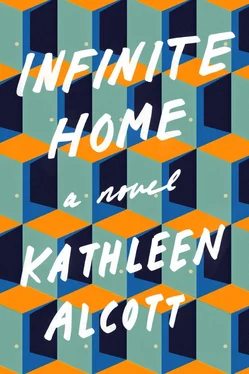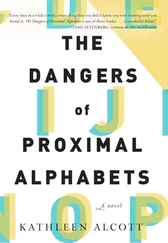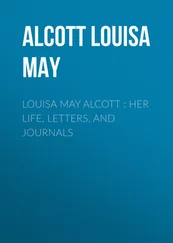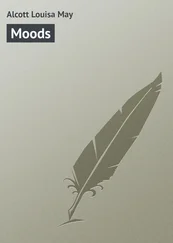He made a mental list of things he liked about Edith; it made him happy to put names to them. He enjoyed the way Edith disliked openly. She didn’t feel the need to offer complex criticisms or to imply that her preference came from superiority. Tomatoes? “Hate ’em!” she’d said. Also: sweaters that pilled, the man at the corner store who always said, “You look tired,” the smell of unwashed art students in the summer. She threw these off her back with efficiency and purpose, as though beating standing water from an awning, and it made Thomas feel more at home with his own distastes. But he adored Edith for plenty of other reasons: She understood slowness. She knew how to wait for the kettle to warm, how to move across a room and appreciate each photograph and plant within it. She was careful about laughter, went to it only when it truly called her. The anecdotes she offered were always well-formed, compact things he felt he could keep and carry with him. “Edith,” Thomas had said on several occasions, in moments drunk on self-pity. “Sometimes I just don’t know! What recommends the rest of my life?” She was the only one he exclaimed around. When he said such things, she made a crumpled face, waved her hand through the air to banish his wallowing as it bounced off the high ceilings. “Dear heart,” she said. “Of course you don’t know. How could you? But have you ever been astounded by what you knew was coming?”

EDWARD USED TO BRING WOMEN home only to make them laugh, to watch as the different points of their naked bodies rippled with a punch line in the half-dark, as their ringed hands playfully slapped him to stop. He would calm enough finally to do what they expected, to cup their breasts with hunger and move and keen until they were still. Sometimes he even managed the tenderness afterward, the holding and sighing and postcoital half-sentences, the wiping of sweat and come, the leaving for two glasses of water with the promise to be right back. But then he was onstage again, there in his own bedroom, doing his best to make the girls cackle and stay awake on a mattress growing lumped, and he would remember how it began.
He’d never been able to sleep; neither had his brother. Their parents were not alcoholics or child abusers, nothing so directly antagonistic, but they cultivated in their children a mounting fear of the universe, a suspicion of evil in the familiar that transcended caution and became paranoia. They spent breakfast stabbing at the pages of the newspaper, challenging each other to produce the more horrific news story. A father, somewhere in Kansas, who killed his wife and children before cutting his own feet off! Drug lords in faraway cities keeping prostitutes in cages and feeding them only dog food or Styrofoam packing peanuts! Three and four decades later, Edward had a hard time deciphering which of these had been exaggerations; the text of those headlines seemed to pulse at the periphery of his thoughts the moment he walked a darkened street alone, approached a window at home he didn’t recall opening.
They had brought their horrors in closer circles, too, warning Edward and Zachary about the gas station attendants three blocks down — hoodlums, criminals — and the single man up the street with the many cats: There is something about him I just don’t trust, his mother had said.
At night, instead of letting all these things sift and combine into a web of nightmares, Edward had crept into his younger brother’s room and lain on the floor, kneaded his fingers into the carpet kept so clean, and invented a place for himself and Zachary to hide. Edward made shadow puppets on the wall: talking heads of their parents bickering about the exact ingredients of the pastry they’d shared; the older girl down the street with the huge breasts and the way she tottered forward. He impersonated their grade school principal, who Edward thought spoke as if concealing a vat of cream cheese at the back of his throat, embellishing the nasal insistence, the sounds of the fat cheeks’ suction on squat teeth while he delivered the overused catchphrase. Dish-ipline will be dish-tributed , Edward would say. Now build me a schity of bagels!
His inability to play the somber lover aside, some of the women returned, insisted on it even, pushed him up against the sandstone of Greenwich Village and offered to hail a taxi. He always had trouble, though, giving them a humor they could confidently claim was inspired by their bond, personal between the two of them. Or not saying anything when they farted in a particularly musical way, even if their eyes said, Not now, not today . The ones he didn’t abandon out of sheer negligence, failing to call for days, left him violently, always using terrible names like bastard and narcissist and making dramatic accusations about the poverty of his heart.
This was the period after the glow of quitting his day job had worn. He’d begun appearing on nighttime television, sitting with an ankle on a knee in one of those interchangeable plush chairs and gesturing with the provided coffee mug actually filled with water. He still preferred the tiny, sweaty crowds, the possible explosions given the night’s chemistry. He brought other comedians and audience members alike back to his apartment in Brooklyn, always paying for cab fares and drugs and drink, thrilled each time by the continuation of the night. Wary of his success, he kept his cheap apartment.
A woman who could spit back and thrive in the unsavory back rooms and at the mostly male after-parties, Helena became a fixture by the mid-nineties. She wore high-waisted linen trousers and pale silk shirts that buttoned up the back in the fall, oversized maroon faux-fur coats in the winter, and her bones formed a collection of angles he grew to need. She worked for little pay as a social worker, touring the homes of destitute families, and talked about them over dinner, their names and misfortunes floating over the candles on the cramped restaurant patios where she and Edward ate.
The night she moved in, she hung small globes of light, placed red porcelain mugs in the cupboards, swept corners it had never occurred to him were dirty. Even when they fought, she exercised perfect timing, and after, while they made up, she held his arms against the sturdy wood bed frame she’d also brought with her, and insisted that the lights stay on.
He liked to maintain that she’d left when his success dwindled, despite so much proof of the contrary, and clutched this in his mind with all other things growing old and ossifying. But then he remembered her soft murmurs on waking at four a.m. to an empty bed, her coming to him on the couch and curling up and expressing fond interest in the decades-old movie keeping him company. The moment when she got up to put the kettle on, the sound of the old drawer unsticking so that she could retrieve a spoon for his sugar. How many times she had fallen back asleep there, in his lap, though the bedroom was a mere ten feet away. The way she accepted his deepening morbidity, listened intently to the story of his mom forbidding him to leave the house for two weeks at the rumor of a nasty flu, of the cleaning tasks she’d assigned her son during the quarantine. How Helena had insisted on washing the sweatpants he’d begun resigning himself to, how the use of fabric softener was evident. How he had cried when she cut off her hair the month before she left him, a child who couldn’t recognize his mother, and how she had held him, even then.

Читать дальше













